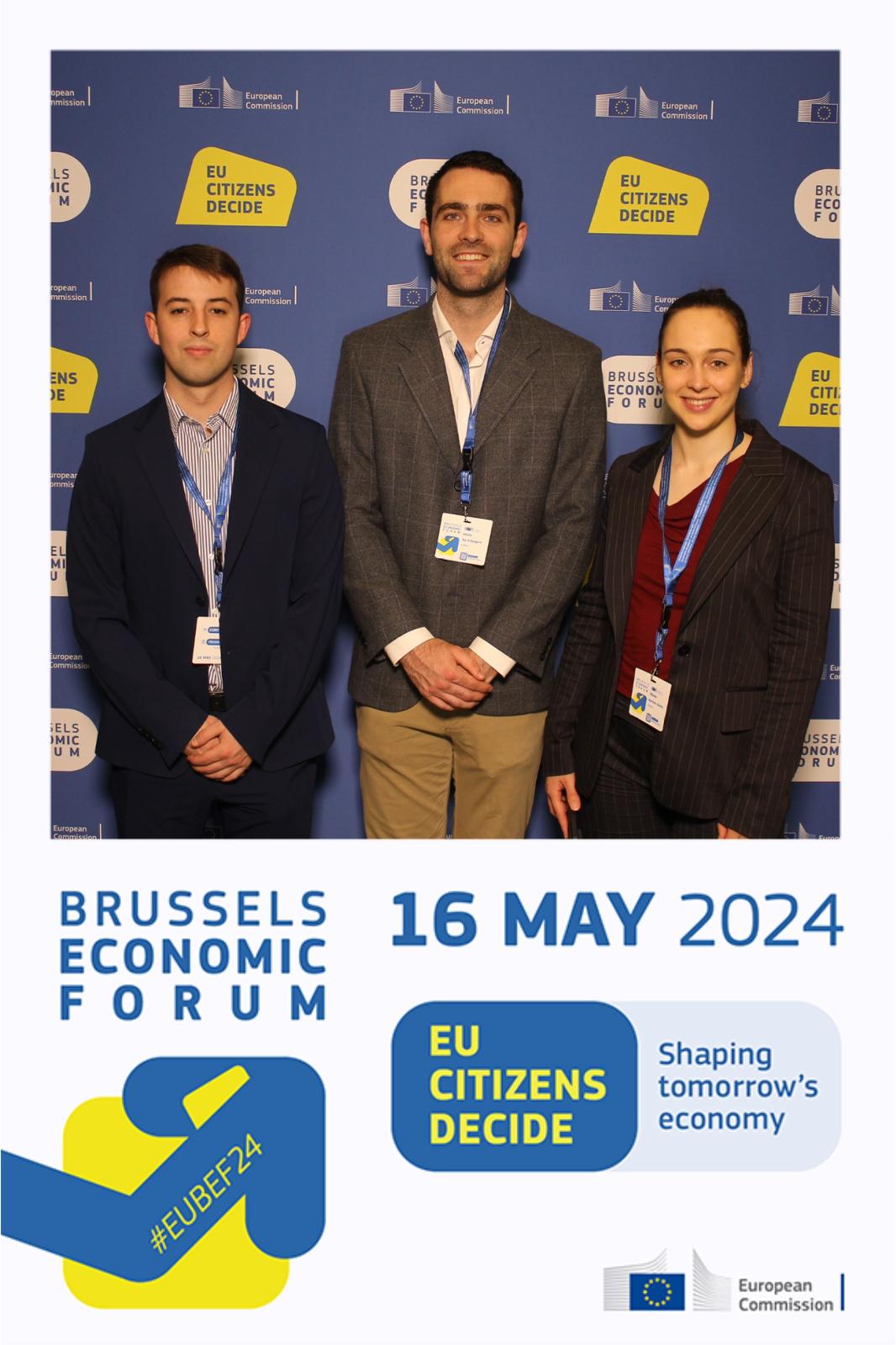On 16 May, we had the opportunity to attend one of the most important events of the year in European economic matters: The Brussels Economic Forum. Without a doubt, this is a particularly relevant event, considering the quality of the speakers from various sectors such as academia, European politics, and civil society. Given the timing of the event, all the interventions were certainly conditioned by the electoral landscape. This made the event feel even more significant, due to its potential influence on the June elections, where the roadmap that the EU will follow in the coming years will be set.
In addition to this pre-electoral atmosphere, the tension that the EU has been experiencing in recent years was also palpable, especially concerning the growing concern over the need for a sustainable energy transition and the pursuit of a solution to the Russian-Ukrainian conflict. In this regard, during the keynote speech that opened the event, the Lithuanian Prime Minister was emphatic about the need for the EU to ensure its strategic autonomy and to work committedly towards distancing itself from the Russian economic sphere of influence and reducing dependency.
Later on, Nadia Calviño, the president of the European Investment Bank, in a more optimistic manner, emphasised the need to maintain a united European Union to overcome the challenges it currently faces. In this regard, she highlighted the fundamental role of the EIB in ensuring the ecological and social transition, as well as being one of the mechanisms to address new geopolitical challenges.
Regarding the panel discussions, the participants' concerns followed a very similar line, making it clear that the European bloc needs to position itself strategically in the international arena. Additionally, there is a need to consolidate its role as both an enabler and a necessary actor for the global ecological and digital transition. In this regard, it was the Economic Commissioner, Paolo Gentiloni, was particularly direct in addressing this issue. He expressed his concern about how the EU Green Deal has become a topic of debate in recent months, despite his view that there should be no debate about the need to advance in the green transition. In this regard, the Greek Minister of National Economy and Finance, in agreement with the Commissioner, also emphasised the need for the ecological transition, while noting the importance of adapting it to all sectors, including agriculture.
Regarding the digital transition, the Oxford-style debate on artificial intelligence was particularly enlightening, especially concerning the regulatory stance that the European Union should take. This debate once again highlighted the obstacles that the new legislature will face in terms of the challenges that new technologies present for the well-being of European society. In addition, the necessity of investing in new technologies to guarantee the competitiveness of the EU in front of global actors was presented. In this debate, the two most usual approaches were visible, one claiming more regulatory limitations towards AI, while the other defending a more innovative and risk-taking perspective.
Overall, we were able to enjoy a very enlightening day with high-level speakers. We also had the opportunity to learn about the concerns of policy and lawmakers, as well as different relevant actors, which is always enriching in terms of understanding the roadmap and the challenges that will be present during the next five years.
